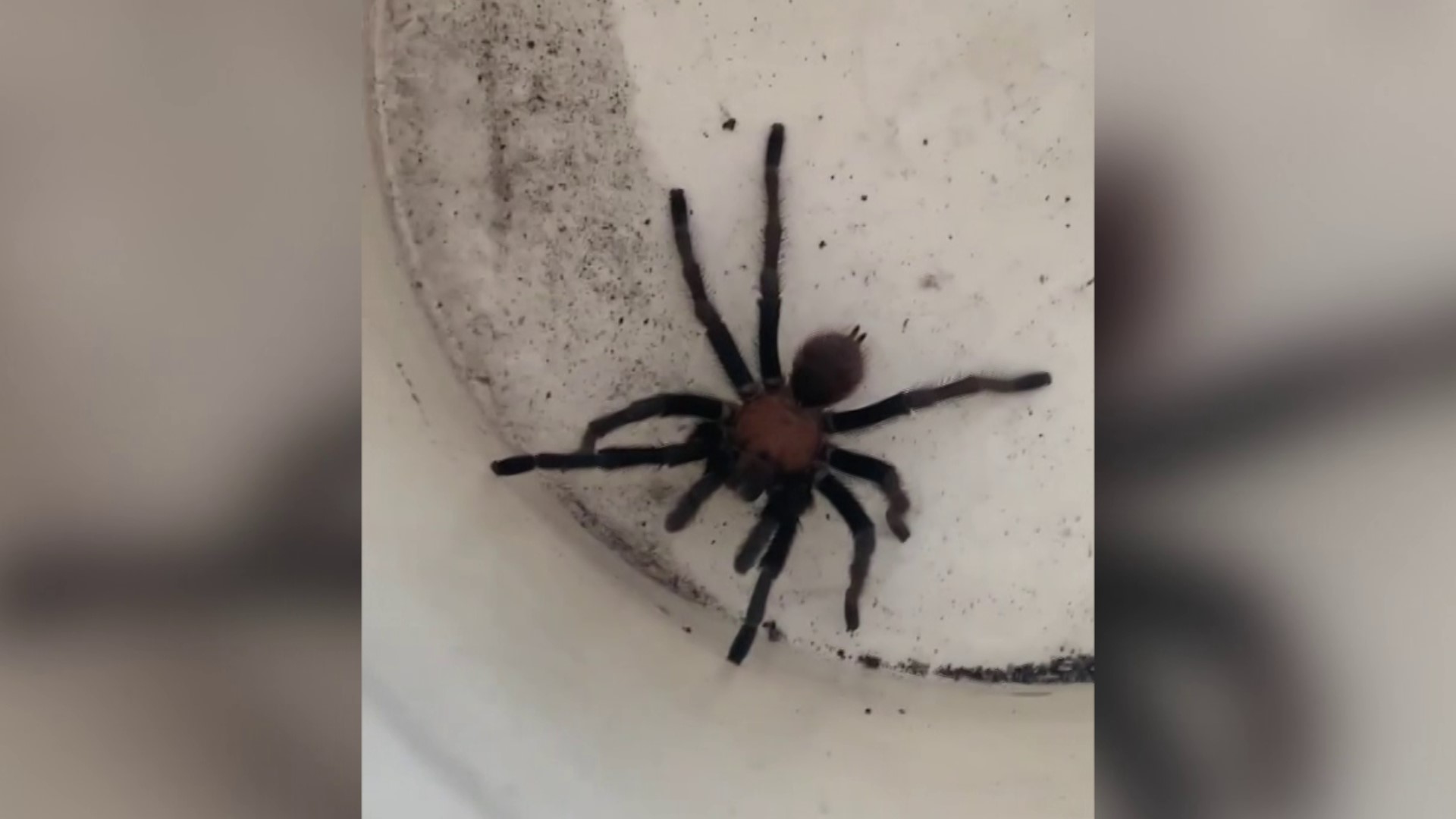ARKANSAS, USA — This time of year in the Ozarks, tarantulas are known for wandering, but it's a special part of their life cycle.
University of Arkansas Professor and Entomologist Austin Jones says "What we're seeing this time of year, is our Aphonopelma hentzi also known as "Chocolate brown tarantula" or "Texas brown tarantula" males reaching maturity. Most of them are going to be between 12 and 14 years old when they reach maturity, and once they do that, they just start wandering around looking for dates this time of year... A lot of them will wander around looking for them until they die,"
In the state of Arkansas, there is only one tarantula species. Northwest Arkansas is as far north and east as tarantulas exist in the Americas, and Jones says the spiders like to live in dry habitats with open ground such as forests or meadows.
"They try to avoid areas that are going to have a lot of leaves or organic matter in the soil. They're looking for well-drained, sandier soils. And sometimes they can find those things underneath porches because there's a lot of dry soil that doesn't get rained on much," says Jones.
According to Jones, male tarantulas are typically a lot bigger than females.
"The males are usually the ones wandering around this time of year, and males' bodies are kind of gold in color and their legs are more black, but the females are more brown over their entire body. If you were to dispatch a male, it wouldn't be a huge loss, because it doesn't have babies with it. But it's also not really going to be reducing the number of tarantulas you see,"
Spiders grow faster and reach maturity during warmer months, so as we move through fall, you should start seeing fewer tarantulas.
"I would expect that once we start getting consecutive nights of frosting and freezing you'll start to see them disappear. They won't be moving much more. This is about the only time of year that you consistently see tarantulas out and about during the day in particular, they are mostly blind. They hunt at night a lot of times when they are out and about Yeah, they sense the world through the lens of their feet," Jones explained.
In the meantime, what if you spot one? Jones believes the spiders do not pose a threat to humans, especially since they're mostly blind and easy to catch.
"You can get a container and put it over the top of the tarantula, and then you can find cardboard or something flattened to slide under the bowl. That way, you've got it in a container. When you flip that over, and it's been captured and you haven't had to handle it at all. All spiders are venomous, but tarantulas don't pose any threat," said Jones.
Bites are rare, he says, most commonly happening when the spider feels threatened.
Jones says "Usually when they get aggressive, they're going to rear up and show you their fangs, they'll give you warning signs, one of the things when they get irritated, sometimes they'll start scraping the hair off their body, they'll take their back legs and kind of kick some of the hairs off their butt. And that kind of creates a little bit of a cloud. That's a defensive mechanism because those hairs can be irritating to the skin or really irritating to the eyes if they get into the eyes. So that's something to keep in mind."
Jones advises anyone bitten by a tarantula:
- Stay calm, don't panic
- Don't try to suck the venom out
"It's really a mild venom. Unless someone happens to have a rare allergic reaction ... I would just treat it the same way you would treat a mosquito bite. Washing the area is never a bad idea. But it shouldn't really create much of a reaction," said Jones.
Watch 5NEWS on YouTube.
Download the 5NEWS app on your smartphone:
Stream 5NEWS 24/7 on the 5+ app: How to watch the 5+ app on your streaming device
To report a typo or grammatical error, please email KFSMDigitalTeam@tegna.com and detail which story you're referring to.

